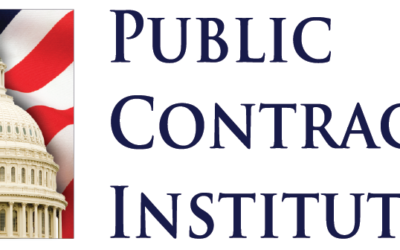Excluding Parts of Proposal: It is frequently the case that a proposal is rejected or downgraded because it fails to follow the requirements of the solicitation. Then there are situations where the agency itself fails to follow its own solicitation, and excludes portions of a proposal that the solicitation requires be considered. Leidos Innovations Corp., B417568.3, .4, May 11, 2020.
Excluding Parts of Proposal Facts:
Leidos concerned an Army issuance of a task order to provide logistics support services for rotary wing aircraft in Afghanistan. The competition was among eight awardees of indefinite delivery, indefinite quantity contract holders for support services. The solicitation provided that technical proposals would be comprised of PowerPoint slides and a videotaped oral presentation, including a question and answer (“Q&A”) session.
Initially, the Army selected Leidos for award, and DynCorp, whose offer was significantly lower-priced, protested the risk assessment made by the Army and other aspects of evaluation. The agency agreed to re-evaluate technical proposals, and GAO dismissed the DynCorp protests. DynCorp submitted a second protest, which was also dismissed based on promised corrective action.
Two months later, a second contracting officer involved in the selection, selected DynCorp’s proposal for award based on re-evaluation of the technical proposals. Leidos protested the selection, asserting that the Army failed to consider information Leidos provided to the Agency during its Q&A session. In response, the Army acknowledged it had failed to consider information that Leidos provided during the Q&A session. The Army claimed there was no prejudice to Leidos. The GAO thereafter directed the Army to produce the complete evaluation record, including the Q&As. The Army responded a week later stating that although the Q&A sessions were recorded, they were separate from the oral presentations and they had been “erased due to an unintentional technical oversight.”
The GAO conducted a hearing, and determined that during the Q&A portion of the oral presentations, both DynCorp and Leidos responded to agency questions that were relevant to the selection decision. However, the contracting officer unambiguously stated that these responses would not be considered and withheld them from the technical evaluators.
GAO sustained the protest because the Army had failed to comply with the solicitation’s provisions regarding consideration of information discussed during the Q&A session. GAO rejected the Army’s assertion that the record failed to establish prejudice, noting that although competitive prejudice is essential in sustaining a protest, where the agency’s source selection decision is based on a flawed evaluation process, the GAO would resolve doubts on prejudice in favor of the protester.
GAO recommended that, because of the erasure of the video records, thereby making reevaluation of proposals impossible, that the Agency resolicit revised proposals, and evaluate them properly.
The Takeaway. Both the offerors and the Government are required to read and follow the solicitation. A contracting officer may not withhold from technical evaluators any evaluation material that is identified in the solicitation as part of a proposal. As the old proverb says “What’s sauce [good] for the goose is sauce [good] for the gander.”
For other helpful suggestions on government contracting, visit:
Richard D. Lieberman’s FAR Consulting & Training at https://www.richarddlieberman.com/, and Mistakes in Government Contracting at https://richarddlieberman.wixsite.com/mistakes.
- What is Red Team Review?
- Unsolicited Proposals
- Incomplete Proposal is not a Matter of Responsibility
- Must Your Proposal State Your Intent To Comply With Every Performance Work Statement Section?
- Must an Agency Permit Price Changes in Final Proposal Revisions?
- Court of Federal Claims Has Jurisdiction Over Implied-in-fact Contract to Fairly and Honestly Consider an Offeror’s Proposal
- Agency Failed to Follow Solicitation Requirement by Excluding Parts of Proposal


